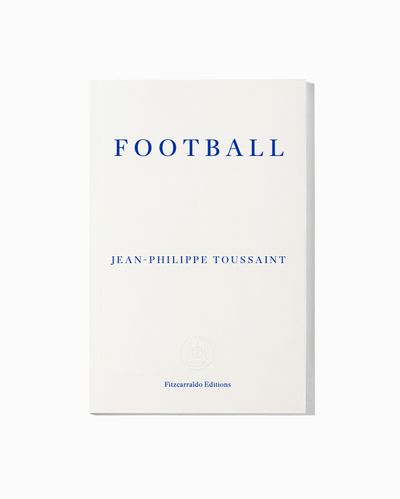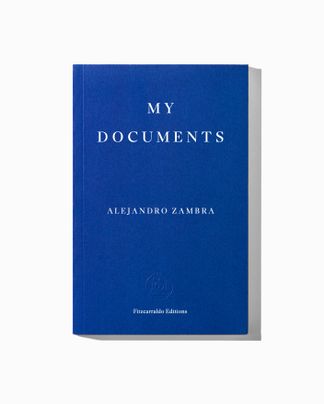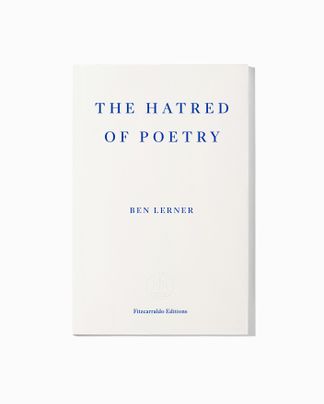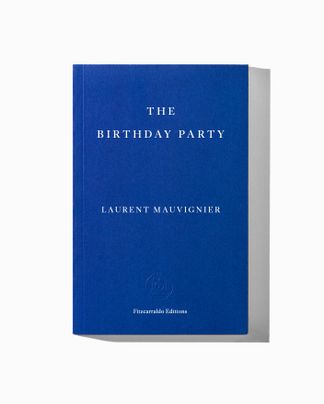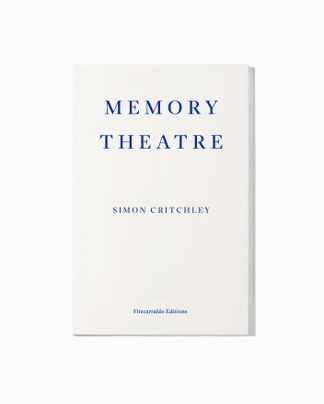‘The whistle was blown, and when, like an unexpected deliverance, Belgium opened the scoring with a spectacular acrobatic scissor-kick by Wilmots, I leapt from my seat, arms in the air, turning in a circle and giddily jumping around in the stands, not knowing where to go, who to celebrate the event with, before spotting another Belgian as isolated as I was among the terraces. We gauchely hurried towards each other, not knowing how to concelebrate our goal, merely striking our palms violently together, like two American basketball players who have just pulled off some kind of feat. Nothing more, we didn’t exchange a word, I don’t even know if this man spoke French (it was one of the strangest relationships that I have ever had in my life), finding him again a quarter of an hour later in the same place to repeat the same gesture after Belgium’s second goal.’
Praise for Jean-Philippe Toussaint
‘Toussaint is carving out one of the most fascinating literary oeuvres of our times.’
— Nicholas Lezard, Guardian
‘For any serious French writer who has come of age during the last 30 years, one question imposes itself above all others: what do you do after the nouveau roman? … Toussaint’s writing is remarkable for its conciseness, its elision. All his books are short, and the shortest of all is La Mélancholie de Zidane, a ten-page essay which Minuit, charmingly but quite properly, published in 2006 as a stand-alone book. Zidane is perhaps the closest Toussaint comes to meta-fiction: in it, he not only revisits all his motifs, but does so with explicit references, dropped in via footnotes, to The Bathroom, Bachelard and Freud.’
— Tom McCarthy, author of Satin Island
‘Toussaint’s prose is a pleasure to read: precise and increasingly muscular. There is a mesmerizing quality to his attention to detail … that marks him out as a successor to those other Minuit authors, the practitioners of the nouveau roman. But his is also a distinctive and original voice in French fiction.’
— Adrian Tahourdin, Times Literary Supplement
‘That there is nothing like this being written in English at the moment should be recommendation enough to the curious reader.’
— Jonathan Gibbs, Independent
‘Toussaint has established himself as one of contemporary French literature’s most distinctive voices, turning the existential tradition into something lighter, warmer and ultimately more open.’
— Juliet Jacques, New Statesman
‘At times, football is seen by the author as a distraction from writing. At others, writing becomes a ruse to watch football games … Throughout, however, there is an almost subterranean quest for words that would “have the power to reactivate the magic of football”: “words of poetry, or literature, which come to brush against football, grasp its movement”. Football by other means.’
— Andrew Gallix, Financial Times
‘Were he writing about soccer and nothing else, Football would be far less intriguing. But many other things occupy Toussaint here: how the phenomenal world is often less attractive than the world conjured in our imagination; how melancholy serves both to sharpen and to blunt our perception of things; how a deliberately naïve, childlike approach to experience can help deflect our fear of dying; how the past escapes from us despite our best efforts to recapture it.’
— Warren Motte, World Literature Today
‘Simple everyday activities that take place during a game … become artful and exquisite recollections and personal experiences come bubbling to the surface when explained by Toussaint’s pen.’
— Messy Booker

